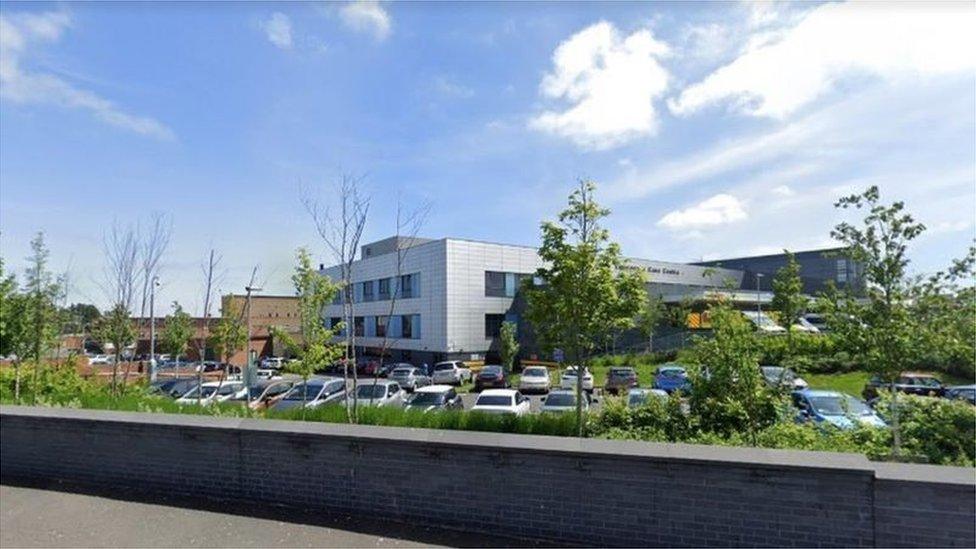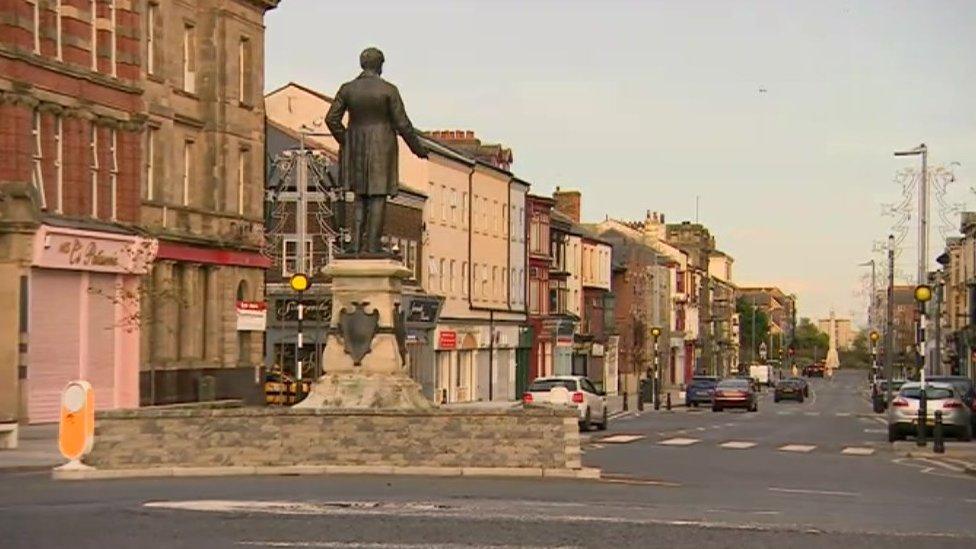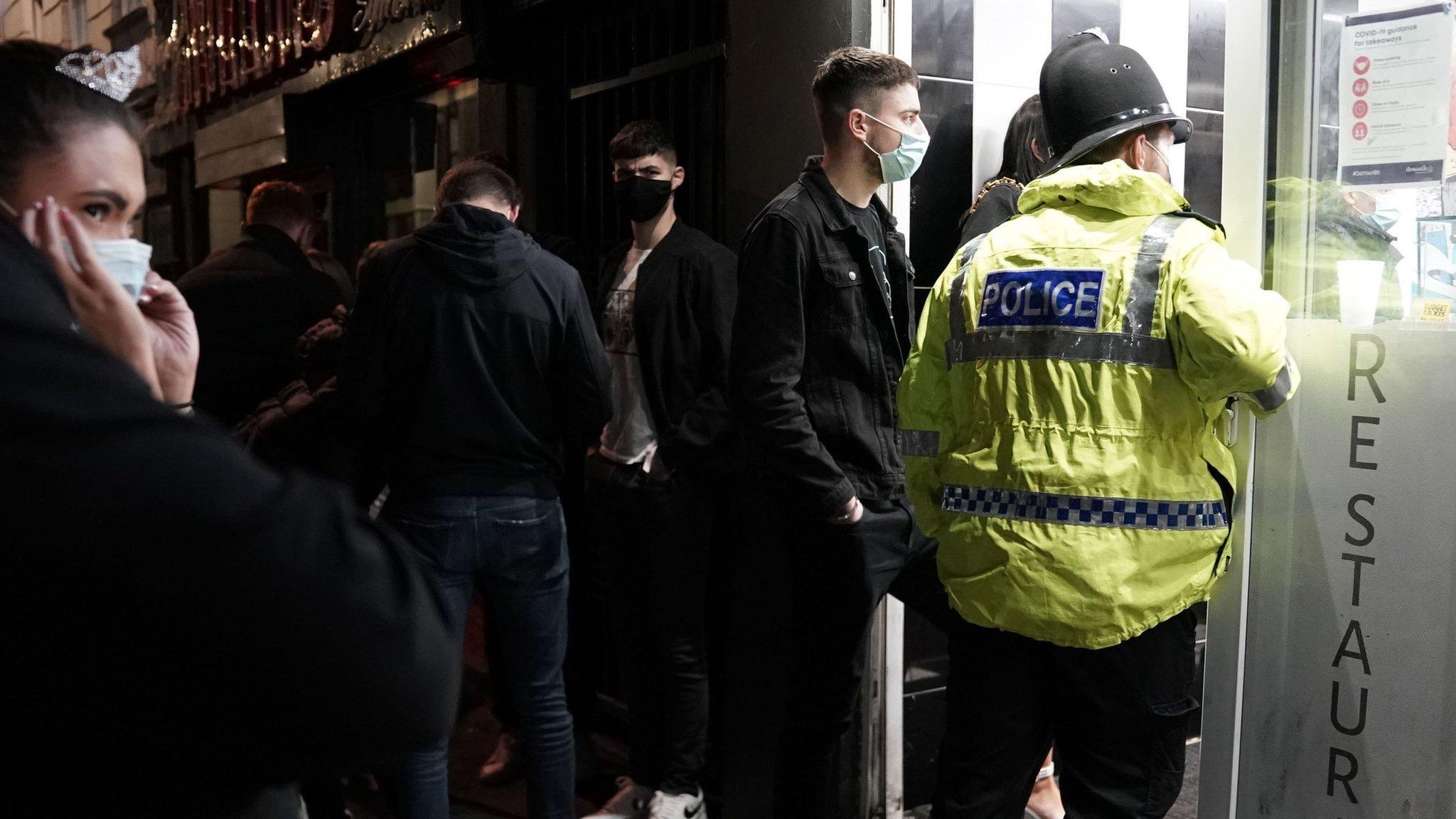Covid: North East hospitals warn over 'rapidly rising' admissions
- Published

Non-urgent elective surgery at the Queen Elizabeth Hospital has been temporary suspended
Hospital chiefs in the North East have warned of bed shortages and more deaths unless Covid-19 rates can be reversed.
Gateshead's Queen Elizabeth Hospital has temporarily suspended non-urgent elective surgery to free up staff.
In a joint statement, the bosses of several health trusts said they were having to deal with "rapidly rising" numbers of covid-related admissions.
They have appealed to the public to only attend A&E if they have "serious or life-threatening emergencies."
The statement said it was "unknown territory" once lockdown ends on 2 December and urged people to follow self-isolation, social distancing and hygiene rules.
"Over the past few weeks, we have seen cases in our communities increasing and, as a result, hospital admissions are rising rapidly," the statement added.
"Unfortunately, this is a trend we are likely to see continue going into winter."
The statement was endorsed by the leaders of the seven council areas which cover Northumberland, Tyne and Wear and County Durham.
Yvonne Ormston, chief executive at Gateshead Health NHS Foundation Trust, said the situation at the Queen Elizabeth Hospital would be reviewed daily "in a bid to reinstate our services as soon as we can."
The North East went into the four-week lockdown as the only part of England where the number of new Covid cases was flattening, but numbers have risen in the past fortnight.
'Expect some plateauing'
Prof Eugene Milne, Newcastle's director of public health, warned the city is set to be placed under the toughest tier three Covid restrictions, once the lockdown ends.
He said infection rates would need to drop "significantly" to avoid tier three and doubted that such a rapid fall would be possible, the Local Democracy Reporting Service said.
In the week to 14 November, Newcastle reported 1,359 new cases, with an infection rate of 448.8 per 100,000 of the population, government figures show.
Prof Milne added: "If I were to predict what is going to happen between now and the end of the month, I would expect some plateauing or possibly a fall. But I doubt it is going to be a fall to the level that I think we would need.
"By that, I am suggesting that we would want to be down to 250 per 100,000 per week or below to think we were likely on that count to be in a position to consider lower tier status."

THE R NUMBER: What it means and why it matters
SUPPORT BUBBLES: What are they and who can be in yours?
TEST AND TRACE: How does it work?
TESTING: What tests are available?


Follow BBC North East & Cumbria on Twitter, external, Facebook, external and Instagram, external. Send your story ideas to northeastandcumbria@bbc.co.uk, external.
- Published18 November 2020

- Published17 November 2020

- Published11 October 2020
